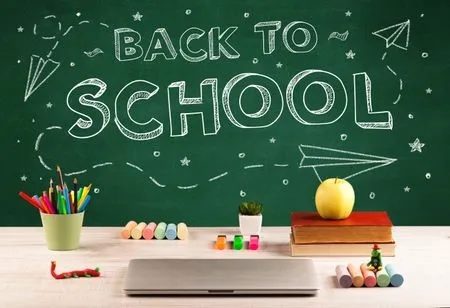For our ADHD kiddos, summer vacation can be a much welcomed and appreciated break from the challenges of school. The demands of academics and school schedules can be a real struggle for those children with weaker executive function skills. So, as summer draws to a close, the approach of the new school year can inspire fear and dread in the hearts of both those kids with ADHD as well as their parents. It doesn’t have to be that way, though. With some advance planning and a few seasoned tips, we can shift our mindset and view the new year as an opportunity, for a better more productive year.
Set Goals Think about last year. What worked for your child and what didn’t work? In what areas would you like to see change and growth. If your child has an IEP or 504 plan, dedicated some time to review and reassess it. Discuss and collaborate with your child what’s important to them to achieve for this year. If your child has buy-in, they will have intrinsic motivation. Perhaps, it’s making the bus (and not being late) consistently, turning in assignments on time, or making new friends that will ignite their interest. Brainstorm with your child and then come up with a plan. As the saying goes, “A goal without a plan is just a dream.” Another important part of the discussion with your child should be creating rewards to motivate them.
Reestablish or Create New Routines. Routines are a vital ingredient for ADHD school success. If you had working routines during the previous academic year, ease your child back into them several weeks before school begins. A morning wake-up and school prep routine, after school homework and play routine, and an evening wind down routine are the three routines most relevant for students. Make a list of the tasks in the routine and post it for easy reference. One of the most important elements of our kids’ routines is sleep. Sleep will have a profound impact on all core ADHD symptoms, for better or worse. For example, a good night’s sleep improves the ability to focus and sustain attention. It also can lessen hyperactivity, enhances impulse control, emotional regulation, and overall mood. So, clearly A good night’s sleep will have a domino affect on their morning and success in school and at home the following day.

Get Organized Ensure that your child has all the supplies they will need for school and homework time. Some great organizing tools include: a desk organizer or bins for supplies, a white board with colored dry-erase markers planning, assignment due dates or for reminders, a large wall calendar, and colored folders and binders. Create a homework station for your child where they will have easy access to everything they will need for assignments and studying and away from distractions like television and potentially bothersome siblings.
Reintroduce or Reassess medication Many parents decide that summer holiday should also be a drug holiday for their children. If your child took a vacation from medication for the summer, it’s important to reintroduce it several weeks before school to ease the adjustment and side effects. If you feel that your current medication is no longer affective or would like to explore the possibility of medication for the first time, schedule a doctor’s appointment to discuss it with your practitioner prior to the start of the new school year.
Take Care of Yourself Parenting a child with ADHD can take both a physical and emotional toll. Taking care of ourselves, by honoring our own needs will ensure that we can be the best parents possible for our children. Self-care basics include sufficient sleep, eating right, and exercise as well as scheduling time for your self to relax and recharge.
Believe in Your Child Pay attention to your child’s gifts, both their character strengths and areas where they naturally excel. Appreciate your child and view them through a strengths-based lens. Share with your child what you notice. Offer your child praise and encouragement for even the tiniest steps forward towards their goal. If we truly believe in our child’s potential, they will believe in themselves and live up to their potential.



